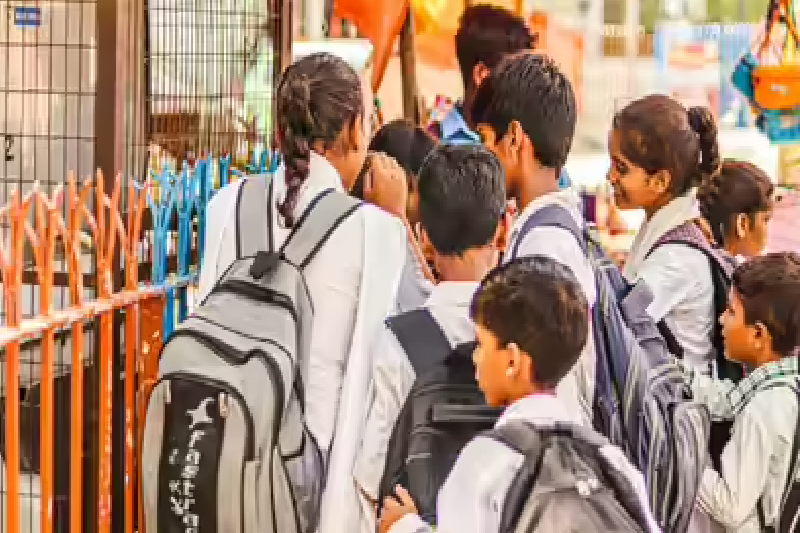
Delhi Government Brings All Private Schools Under New Fee Regulation Law: What Parents Need to Know
In a major policy shift aimed at bringing transparency and accountability to the private school fee system, the Delhi government has passed a new law that brings all 1,700 private schools in the city under a comprehensive fee regulation framework. Education Minister Ashish Sood announced the move on Friday during a “Parents’ Town Hall” event held in Janakpuri, where he detailed the implications and mechanisms of the new law.
The new legislation, titled the Delhi School Education (Transparency in Fixation and Regulation of Fees) Bill, 2025, was passed in the Monsoon Session of the Delhi Assembly. It is designed to end arbitrary fee hikes and ensure a transparent process involving parental input and government oversight.
All Private Schools Now Covered
One of the most critical aspects of this law is its universal coverage. Until now, only 300 schools were under fee regulation due to a loophole in the 1973 rules. The new bill closes that loophole, extending the regulatory framework to all private unaided recognized schools in Delhi.
“This law ensures that no private school escapes accountability,” said Minister Ashish Sood. “Earlier, arbitrary fee increases were common due to lack of oversight. That ends now.”
Parental Involvement and Veto Power
At the core of this legislation is parental participation. The law mandates the formation of fee fixation committees at the school level, which must include parents, teachers, school management, and government representatives.
Crucially, these committees are not just advisory—they will have veto power over any proposed fee increases. If the committee does not approve a proposed hike, it cannot be implemented without going through a higher review process.
This marks a significant shift in the balance of power, giving parents a formal role in decision-making that directly affects them.
Penalties for Non-Compliance
To ensure that schools comply with the new regulations, the law includes strict penalties:
- Schools that raise fees without approval from the government can be fined Rs 1 lakh to Rs 10 lakh.
- If schools collect excess fees and fail to refund them, the fines will be doubled.
These provisions send a clear message: fee hikes must follow due process, or schools will face serious consequences.
Legal Powers for Enforcement
To enforce these rules uniformly, the bill grants the Director of Education powers comparable to those of a Sub-Divisional Magistrate (SDM). This allows the director to take decisive action in cases of violation, ensuring that the law is more than just a procedural guideline—it has teeth.
Key Timelines and Approval Process
The law also sets strict timelines to avoid unnecessary delays and confusion. These include:
- School-Level Committees must decide on proposed fees by July 15.
- District-Level Committees must finalize their reviews by July 30.
- The final decision must be completed by September.
- If any proposal remains unresolved for more than 45 days, it will be escalated to an appellate committee for resolution.
This ensures that all stakeholders have enough time to assess proposals while keeping the process efficient and accountable.
Drafted in Consultation With Parents and Experts
Minister Sood emphasized that the bill was not drafted in isolation. It was developed after consultations with parents, education experts, and stakeholders, reflecting a community-driven approach to policymaking.
“The aim is to curb the commercialisation of education and safeguard the interests of students and parents,” Sood said. He highlighted that unchecked fee hikes had long been a burden on middle-class families, and this law directly addresses that concern.
Criticism of Previous Governments
In his address, Sood didn’t hold back in criticizing past administrations for failing to act on the issue. He accused them of making grand claims about education reform without actually addressing the core issues.
“Those who claimed to have brought an education revolution did not make real improvements in government schools,” he remarked. “As a result, many parents felt forced to send their children to private schools despite the high costs.”
This statement reflects a broader political narrative where the current administration is positioning itself as taking real, structural steps to improve education in Delhi—not just in public schools but also in regulating private institutions.
What This Means for Parents
For parents, this law brings new rights and responsibilities:
- More transparency in how school fees are set
- A direct voice in decision-making through committee participation
- Legal avenues for appeal if fee hikes seem unfair
- Protection from arbitrary charges, backed by legal enforcement
With the law now in place, parents are encouraged to stay informed and participate actively in the fee fixation process at their child’s school.
Final Thoughts
The Delhi government's 2025 Fee Regulation Law is a landmark step in promoting transparency, fairness, and accountability in private school education. By ensuring that all schools are brought under regulatory oversight, empowering parents, and introducing meaningful penalties for violations, the law promises to reshape the educational landscape in the capital.
As the new system gets implemented, it will be critical for parents, schools, and government authorities to work together to make sure the spirit of the law—accessible and affordable quality education—is fully realized.



